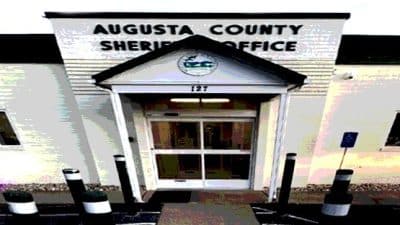
A former mortgage broker, who, seeking a “recession proof” business model, decided to purchase pain clinics throughout the Western District of Virginia including Lynchburg, Madison Heights, Blacksburg, Christiansburg and Woodlawn, pled guilty this week to a federal drug and health care fraud conspiracy.
John Gregory Barnes, 57, of South Carolina, waived his right to be indicted and pled guilty this week to a one-count Information charging him with conspiring to knowingly using, in the course of dispensing and distributing a controlled substance, registration numbers issued to others; distributing and dispensing buprenorphine not for a legitimate medical purpose; and knowingly executing and attempting to execute a scheme to defraud health care benefit programs.
“The conduct here is beyond the pale. We have a record-high number of Virginians fighting opioid addiction while this defendant intentionally prioritized profit over genuine patient care,” said U.S. Attorney Christopher R. Kavanaugh. “I am grateful to those who investigated this matter and brought this case to justice, and we will continue to leverage federal charges against those who commit such brazen crimes.”
In addition to his personal plea of guilty, L5 Medical Holdings, the business entity controlled by Barnes, pled guilty this week to the same charge encompassing the same conspiracies, as well as a conspiracy to distribute and dispense fentanyl, oxycodone, hydrocodone, and morphine not for a legitimate medical purpose.
L5 and Barnes jointly agreed to pay nearly $4 million in restitution to Medicare and Virginia Medicaid and to forfeit $250,000 to the United States.
At sentencing, Barnes faces a maximum statutory penalty of up to five years in prison.
According to court documents, in 2014, despite having no medical training, Barnes bought a medical practice through his company, L5 Medical Holdings. L5 operated pain management clinics, which involved the prescribing of prescription opioids and opioid addiction treatment medications, including Suboxone.
Barnes, who previously worked in the mortgage industry, concluded that pain management was a “recession proof” industry. In addition, he conducted a feasibility study that identified Lynchburg as a prime location for a pain management clinic.
After Barnes began operating his pain clinics, they became more focused on prescribing Suboxone and opioids and less focused on interventional treatments. Barnes and L5 operated the clinics in a manner that prioritized revenue maximization over patient care. Providers were encouraged to limit patient visits to 15 minutes and to see as many as 30 patients per day, court documents reported.
At the direction of Barnes, medical providers with L5 followed the opinion of non-medical professionals in making medical decisions, including whether a patient should be treated for opioid addiction or for pain management, whether a patient should receive a prescription, and what type of drug should be prescribed.
Patient interactions with non-medical professionals were billed to Virginia Medicaid and Medicare improperly, according to prosecutors.
L5 also implemented a urine drug screening policy principally based on insurance reimbursements rather than patient care. In particular, Barnes and L5 specifically refused to implement a random drug screening policy in order to avoid losing the revenue that resulted from billing Medicare and Virginia Medicaid for as many drug tests as those insurance policies would pay for.
The Drug Enforcement Administration, the U.S. Department of Health and Human Services Office of the Inspector General, the Virginia State Police, and the Virginia Attorney General’s Office Medicaid Fraud Control Unit investigated the case.










